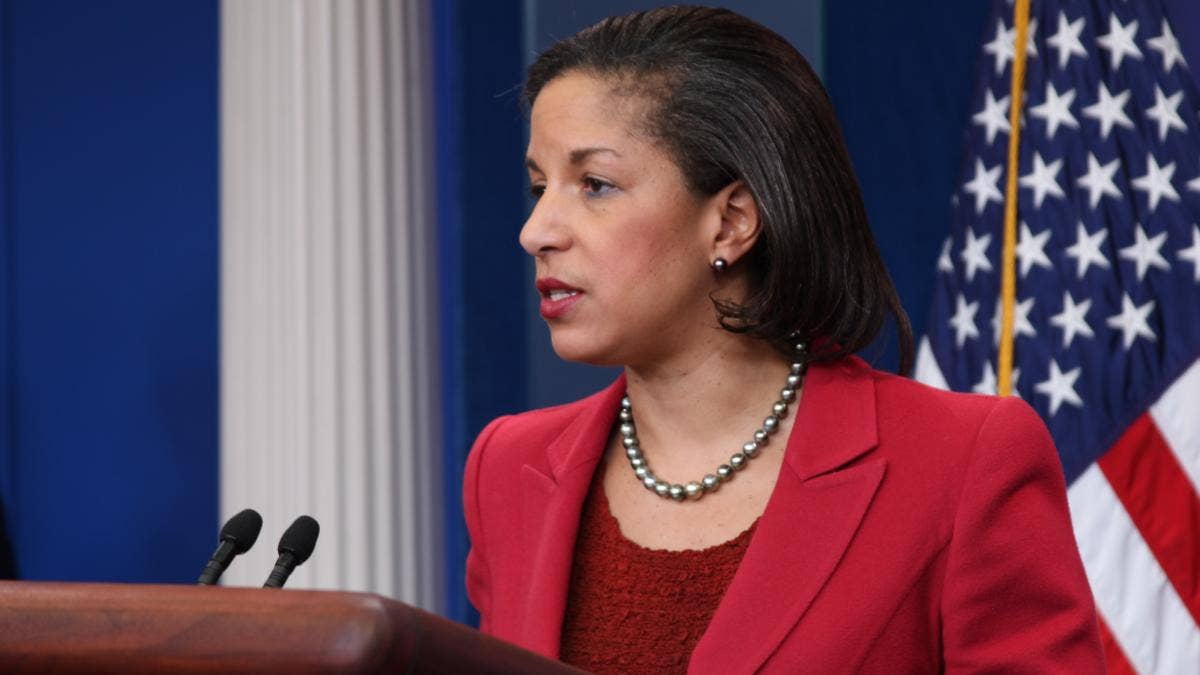
U.S. Ambassador to the United Nations Susan Rice addresses Libya violence at the White House Monday. (Fox News Photo)
Using some of the strongest language yet, the Obama administration said Tuesday that the United States and its allies are keeping all options on the table in their response to increasing violence in Libya directed at citizens protesting a government led by a "crazy" dictator.
Appearing on network morning shows, U.S. Ambassador to the United Nations Susan Rice cast doubt on Qaddafi's sanity and ability to lead and said the international community will continue pressuring Libyan leader Muammar al-Qaddafi with embargos and sanctions until he steps down.
"Any time you have somebody who laughs with American and international journalists while slaughtering his own people, I think they're not only delusional, one has to question their grip on reality," Rice said on NBC's "Today Show," referring to an interview Qaddafi gave Monday to ABC and the BBC.
"We have to assume that we're dealing with somebody who is no longer--if ever was--fit to lead his nation and whose behavior is unpredictable and irrational," Rice added.
The U.N. Security Council passed sanctions against Libya Saturday that included an arms embargo, supplemented by European Union sanctions and U.S. economic action that included a $30 billion seizure of Qaddafi-related assets Monday. But further military measures are still an option.
"We are in discussion with our allies in NATO and elsewhere about planning for all sorts of military contingencies, including a no-fly zone," Rice said on ABC's "Good Morning America."
But an imposition of such a zone would be "challenging," General James Mattis, commander of U.S. Central Command, said during a Senate Armed Services Committee hearing late Tuesday morning.
"You would have to remove air defense capability in order to establish a no-fly zone," Mattis said. "So no illusions here-it would be a military operation, it wouldn't be just telling people not to fly airplanes."
Despite increasingly unified international condemnation of Qaddafi's regime, Rice said the U.S. is not yet prepared to recognize or arm an opposition government.
"We are in a dialogue with all aspects of Libyan society--civil society leaders, those who oppose the regime. But to be candid, there has not yet coalesced a clear-cut unified opposition, so it's premature at this stage to talk about recognizing or providing any material support to such an opposition," Rice said on ABC.
"We are not going to be in the business of picking leaders or dictating how that transition ought to evolve, so we will be, as we have throughout the region, supportive of the people's aspirations," Rice told NBC.
Meantime, the administration has begun positioning naval assets in the Mediterranean Sea should need arise to provide more humanitarian support to the conflict-ridden nation.




